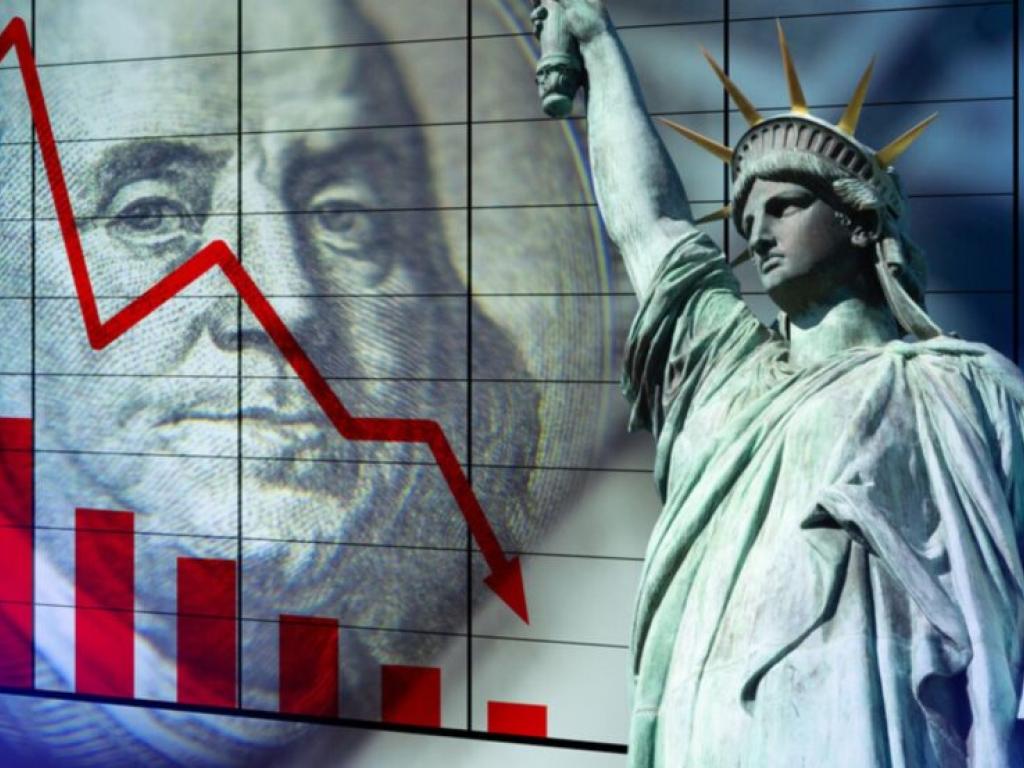Fitch Slashes US Credit Rating: 5 Top Economists Weigh In On Economic Fallout
Author: Piero Cingari | August 02, 2023 09:42am
In a move that sent shockwaves through global markets, Fitch Ratings downgraded the United States’ sovereign credit grade from AAA to AA+. This downgrade, echoing a move by S&P Global more than a decade ago, comes as a result of several concerning factors affecting the nation’s fiscal management.
S&P Global rates the U.S. sovereign credit rating at AA+ with a stable outlook, while Moody’s rates it at Aaa with a stable outlook, both unchanged since 2013.
The VIX “fear index,” which is closely monitored by the Proshares Trust VIX Short-Term Futures ETF (NYSE:VIXY), surged by 11%, minutes after the New York market open on Wednesday, currently on track for the largest daily increase since March 9, the day when Silicon Valley Bank collapsed.
Also Read: US Private Sector Adds 324,000 Jobs In July, Surpassing Expectations: Job Market Demonstrates Strong Resilience
Why Did Fitch Downgrade The US Credit Rating?
- The rating agency justified its decision, citing “the expected fiscal deterioration over the next three years, a high and growing general government debt burden, and the erosion of governance.”
- Fitch also pointed to the repeated debt-limit political standoffs and last-minute resolutions, which have eroded market confidence in the U.S.’s fiscal management.
- One of the contributing factors to the downgrade is the absence of a medium-term fiscal framework and a complex budgeting process.
- Comparing the U.S. debt-to-GDP ratio with its peers, it is over two-and-a-half times higher than the ‘AAA’ median and the ‘AA’ median.
- Fitch expects tighter credit conditions, weakening business investment, and a slowdown in consumption to push the U.S. economy into a mild recession in the fourth quarter of 2023 and the first quarter of 2024.
5 Economists Offer Key Insights
Economists screened by Bloomberg Wednesday morning have responded to the downgrade with varying opinions.
Alec Phillips from Goldman Sachs believes that the downgrade mainly reflects governance and medium-term fiscal challenges, but it is unlikely to have a major impact on financial markets.
Laura Fitzsimmons from JPMorgan Chase & Co. notes that the 2011 experience saw a flight to quality for U.S. dollar and U.S. Treasuries, contrary to the usual response to a sovereign downgrade.
Mark Dowding, chief investment officer at RBC BlueBay Asset Management LLP, sees the downgrade as a warning of the consistent issuance of treasuries, which could have a ripple effect on global markets and shift the yield curve. He also says that investors are starting to believe the Goldilocks narrative, but he warns that pricing for perfection could put investors at risk of a downturn.
Alvin Tan of RBC Capital Markets thinks that bond investors are unlikely to sell their U.S. Treasuries holdings, given their market’s importance and liquidity. To deal with the change in credit rating, however, some non-U.S. domiciled funds may need to reduce their exposure or rethink their mandates.
The markets’ reaction to the downgrade, according to David Croy, an interest rate strategist at Australia & New Zealand Banking Group, might be mixed. While it may be seen as a stain on the reputation of the United States, it may also add to safe-haven demand for U.S. Treasuries and the USD if it causes market uncertainty and a risk-off sentiment.
Read now: Paul Krugman Wants To Know ‘Inside Story’ As Fitch Downgrades US Credit Rating: ‘Strange Decision…I’ll Be Shocked If Markets React’
Photo: Shutterstock
Posted In: VIXY





